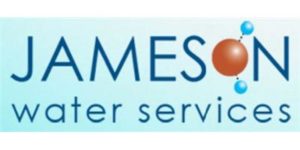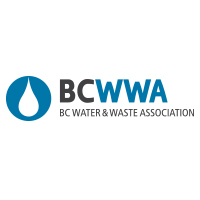 WATER DISTRIBUTION SYSTEM OPERATIONS
WATER DISTRIBUTION SYSTEM OPERATIONS
LEVEL I & II
November 6 – 8
8 a.m. to 4 p.m.
Manual Training Center
1212 2nd Street North – Cranbrook BC
$750 per registrant
This three-day course covers the required material for taking the EOCP Level I and II certification exam. An exam session has been set up for Nov 9th.
Participants earn 1.8 Continuing Education Units from the EOCP.
Please see attached form for registration information.
Course topics include:
- Regulations and standards for wastewater distribution systems
- Water quality and sampling techniques
- Distribution components and operation
- Chlorine handling and disinfection procedures
- Pump operation and maintenance
- Calculations required for distribution operators
For information about the event, Click Here!
Small Water Systems
Course Overview
This two-day course introduces students to the fundamentals of small water systems operations and maintenance, and what operators need to know to ensure that their systems complies with legislation and protect public health.
You should take this course if you:
- Operate and maintain water systems that serve a population of less than 500.
- Are preparing to write the EOCP certification exam for small water systems.
Learning Objectives
After completing the Small Water Systems course, you will be able to:
- Understand the factors that impact water quality, the legislation that governs water quality and supply, and how to monitor and report on your water system to protect public health.
- Understand common water treatment methods, including filtration, and the safe use of chlorine, ozone and UV for disinfection.
- Understand how water distribution systems function, including the materials and equipment, repair and maintenance procedures, and safety.
Certification Information
- Certifications and exams are administered by the Environmental Operators Certification Program (EOCP) – please contact them for more information or to register for an exam.
CEUs
This course provides:
- 1.2 core CEUs for small water systems and water treatment (SWS & WT) EOCP certifications.
- Related CEUs for small wastewater systems, wastewater collection, wastewater treatment and water distribution (SWWS, WWC, WWT & WD) EOCP certifications.
 This one-day course explains the reasons for flushing and the types of flushing programs and procedures.
This one-day course explains the reasons for flushing and the types of flushing programs and procedures.
You can register for the event at http://www.kpu.ca/cps/wastewater/elective-courses
Beginning in 2010, BCWWA requires all certified Backflow Assembly Testers to recertify every 5 years. This Recertification program meets the requirements of the BCWWA and provides existing certified testers the opportunity to ensure that are up to date with the latest testing procedures and current reference materials such as AWWA Canadian Cross Connection test requirements, plumbing code and local bylaw changes. This 10 hour course includes:
Current Test Procedure review
- RP
- DCVA
- PVB
- SRPVB
- New forms, common errors
Summary of applicable standards as of the date of the course delivery
- CSA
- Canadian Cross Connection Manual
- Plumbing Code (building code)
- Current AWWA Canadian CCC tester certification policies
- Local bylaws
This course is followed by a BCWWA Tester Recertification examination session which includes the practical and written examination.
The exam typically starts at Noon on the last day.
**NOTE: Registration for the exam is separate, please go to www.bcwwa.org to register for the exam (2 weeks prior to program)**
**AWWA Canadian Cross Connection Control Manual is “not” included in cost**
Description:
This course is designed to assist field staff troubleshoot and repair water and sewer pumps. Hydraulics are introduced to assist with getting the best efficiency for the utility. At the end of the two day session the Pump Station Operator will have a better understanding of the importance of pump maintenance as it related to the operating expenses of the utility. The operator will also have the confidence to troubleshoot and tear down water and sewer pumps to perform basic repairs.
- Water Pump Fundamentals – Including wear rings and Impeller height settings
- Pump Cavitation and NPSH – Cavitation costs, modifying system parameters to resolve / minimize damage
- Pump Curves and Hydraulics – Includes affinity laws to begin the discussion on Variable frequency drives
- Sewer Pump Fundamentals including wire to water efficiency – Discuss true long term cost of ownership of various types of sewage pumps
- Pump rebuilding, bearing installation and troubleshooting – How to identify thrust direction and identify causes of bearing failure
- Pump alignment and next steps to increased efficiency – Alignment fundamentals, soft foot, base grouting, effects of piping strain
 This course is intended to provide information for Water Distribution Staff, to improve their knowledge of water quality in the distribution system, activities that are necessary to prevent water quality deterioration, techniques for monitoring and testing, and methods to maintain the safety of drinking water.
This course is intended to provide information for Water Distribution Staff, to improve their knowledge of water quality in the distribution system, activities that are necessary to prevent water quality deterioration, techniques for monitoring and testing, and methods to maintain the safety of drinking water.
You can register for the event at http://www.kpu.ca/cps/wastewater/elective-courses
This interactive and hands on course is of interest to: operators, contractors, fire fighters, engineers and those who are responsible for the fire hydrants on their system. This program provides maintenance requirements and procedures for a wide selection of the common hydrants in use today. This 1 day program covers Fire Hydrant Maintenance procedures, including:
- Safety
- General hydrant maintenance requirements
- Manufacturer specific hydrant maintenance
- Hands on tear downs on several manufacturers hydrants
- Whenever possible, we invite the manufacturer’s representatives to present the material specific to their hydrants.
Reservoir Maintenance and Cleaning
Course Overview
This one-day course addresses best practices for maintenance, cleaning, safety, and chlorination of reservoirs.
You should take this course if you are:
- A water system operator or administrator responsible for the operation and maintenance of reservoirs, tanks, or other distribution system storage facilities.
- A certified operator in water treatment, water distribution, or small water systems interested in earning continuing education unit (CEU) credits.
You will be asked to complete a knowledge assessment when you register to give the course facilitator an understanding of your acquired knowledge to date.
Learning Objectives
After completing the Reservoir Maintenance and Cleaning course, you will be able to:
- Understand distribution system storage, maintenance, inspection, and cleaning methods.
- Recognize safety concerns involved with operating or maintaining a reservoir, including confined space entry.
- Produce a chlorination plan for a reservoir.
CEUs
This course provides:
- 0.6 core CEUs for small water systems, water distribution and water treatment (SWS, WD & WT) EOCP certifications.
- Related CEUs for small wastewater systems, wastewater collection and wastewater treatment (SWWS, WWC & WWT) EOCP certifications.
Water Quality & Sampling for Water & Wastewater
Course Overview
This course provides a working knowledge of sampling for both potable water and wastewater systems.
You should take this course if you are:
- An operator in a water treatment or water distribution system, an operator in a wastewater treatment facility, or responsible for water or effluent quality.
- Interested in moving into a laboratory testing role.
- Preparing for a certification exam or want to earn CEU credits that can be applied to water or wastewater systems continuing education requirements.
Learning Objectives
After completing the Water Quality and Sampling for Water & Wastewater course, you will be able to:
- Understand how sampling is used to monitor for compliance with regulations for drinking water and wastewater effluent.
- Understand common sampling methods and procedures including grab samples, composite samples, and automatic sampler tools, and how to determine which procedure is appropriate based on the circumstance, including routine bacteriological sampling, full chemical analysis, sampling for THMs, influent sampling, primary clarifier sampling, mixed liquor sampling, and monitoring well sampling.
- Calculate the area, volume and time required to flush tanks and pipes.
- Understand the equipment and materials used for sampling, and the potential safety risks.
- Apply the concepts that guide a sampling plan, including chain of custody, and documentation.
- Apply quality management methods for quality assurance and quality control (QA/QC).
CEUs
This course provides:
- 1.2 core CEUs for small wastewater systems, small water systems, wastewater collection, wastewater treatment, water distribution and water treatment (SWWS, SWS, WWC, WWT, WD & WT) EOCP certifications.
This program is designed for operators, and those working with water distribution systems who are responsible for the day to day operation and maintenance. This 1 day program provides a variety of leak detection concepts such as leak detection justification, programs for water loss modeling and leak detection procedures. Agenda items include:
Leak Detection concepts:
- Water Leak History and Statistics
- Types of Leaks
- Leak Detection Programs
- Water Loss Modeling
- Leak detection
- Typical piping materials and their effect on leak detection
- Acoustic Leak detection procedures and equipment
- Geo Phones
- Correlation systems
- Data logging
- Factors effecting acoustic leak detection
- Alternative Leak detection methods


